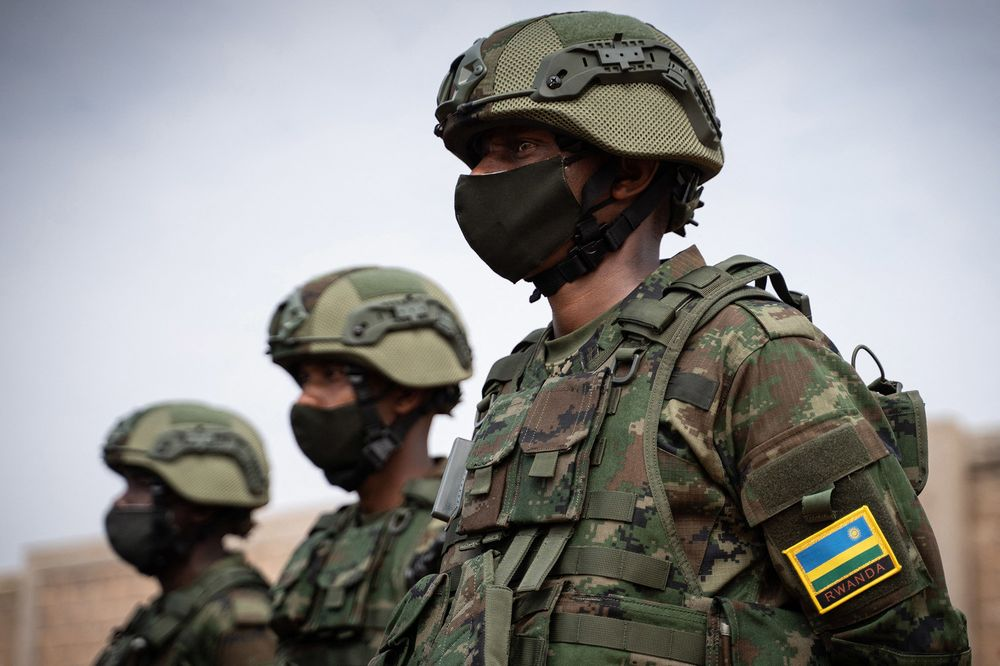The European Union is considering providing financial support to Rwandan troops fighting an armed Islamic State-linked force in Mozambique’s gas-rich northeastern region.
The insurgency by Islamist fighters that began in the region in 2017 has left more than 3,000 people dead and displaced nearly a million, and prompted French energy company TotalEnergies SE to suspend a $20 billion natural gas project. Were production to begin, it would offer Europe an alternative source of supplies at a time when Russia is restricting gas sales to the continent.
The EU is “discussing the provision of support to the Rwandan deployment in Mozambique,” said Nabila Massrali, spokeswoman for EU Foreign Affairs and Security Policy. “We will not comment on it until a decision is taken.”
Talks with member states are at an advanced stage, with the proposal receiving strong support from France, Germany and Italy, said two EU officials, who asked not to be identified because they aren’t authorized to speak publicly on the matter. The rationale for the deal aligns with the bloc’s desire to help the continent provide African solutions to African problems, while simultaneously upholding peace and security and securing a huge gas reserve off the Mozambican coast, the people said.
Cementing Gains
“There is ongoing joint mobilization by Rwanda and Mozambique to secure support from the EU peace facility, to ensure gains made against violent extremists” are maintained, said Yolande Makolo, a Rwanda government spokeswoman.
A 2,000-strong force of police and troops “dislodged insurgents from their strongholds” and “allowed civilians to return to their villages,” she said in an emailed response to questions.
Last month, the EU agreed to provide 15 million euros ($14.6 million) to the Southern African Development Community Mission in Mozambique under the European Peace Facility, a 5-billion-euro fund that enables Europe to arm African armies bilaterally.
Securing EU funding for Rwanda troops would give Rwandan President Paul Kagame further international backing and legitimacy as he seeks to increase his nation’s military footprint across Africa and become a go-to force to help settle regional disputes.
Benin Talks
Kagame deployed a contingency of troops to Bangui in Central African Republic in 2020 to help protect the government from rebel forces, and is in talks to provide military support to Benin in its fight against Islamist insurgents.
While the EU funding will help Rwanda quell the insurgency, the militants continue to spread in Mozambique and ending the conflict will likely come down to negotiations, said Dino Mahtani, an independent regional analyst.
“The financing will certainly help the military efforts to contain the insurgency, but it needs to be matched with complementary diplomatic efforts to encourage the authorities to find a negotiated way out of conflict with Mozambican insurgents who are now also operating in provinces beyond Cabo Delgado,” Mahtani said. “It is not necessarily realistic to expect the military campaign to defeat such a grass roots insurgency outright.”
United Nations experts have also documented that Rwandan troops have infiltrated North Kivu in the Democratic Republic of Congo to arm and fight alongside members of the M23 rebellion, an insurgency formed in 2012 that claims to defend the interests of Congolese Tutsis, the ethnic group that Kagame belongs to, against Hutu militias.

